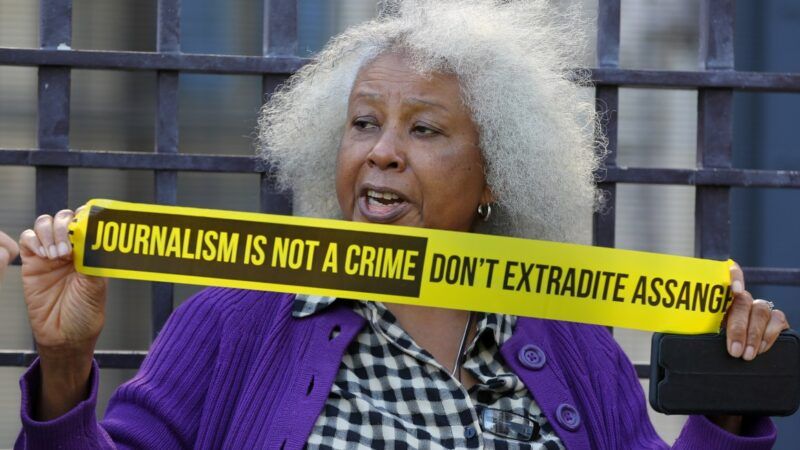Major Media Outlets Condemn Continued Prosecution of Julian Assange
The open letter warns the indictment “threatens to undermine America’s First Amendment and the freedom of the press.”

The editors and publishers of The New York Times and several major European media outlets have released an open letter condemning America's prosecution of WikiLeaks founder Julian Assange.
Assange faces 19 federal charges of espionage and hacking for his alleged role in helping Chelsea Manning get access to classified military reports from the Iraq and Afghan wars. Those charges were filed in 2019, but a superseding indictment from the Justice Department filed in June 2020 added more details and accusations (but not new charges), claiming Assange recruited hackers and directed them to targets. The Department of Justice's position is that Assange is a hacker, not a journalist.
Assange is currently in jail in England awaiting extradition to the United States for prosecution. He's been fighting the extradition but has been losing.
The New York Times and several other media outlets have published some of the information that WikiLeaks has uncovered, and today's letter provides a somewhat qualified defense that Assange is a journalist and that his publishing of leaked classified information is not a crime: "This indictment sets a dangerous precedent, and threatens to undermine America's First Amendment and the freedom of the press."
The Times is joined in the letter by The Guardian in England, Le Monde in France, Der Spiegel in Germany, and El País in Spain. They were the five media outlets that in 2010 published many details of the hundreds of thousands of confidential cables from the U.S. Department of State about hidden corruption and diplomatic scandals.
The letter includes a paragraph critiquing Assange's judgment in releasing unredacted copies of these cables in 2011. It says "some of [the outlets] are concerned about the allegations in the indictment that he attempted to aid in computer intrusion of a classified database." This is in reference to Assange allegedly helping Manning attempt to crack encryption on classified military files, according to the Justice Department indictment.
In other words, the editors and publishers are willing to acknowledge that Assange might not be just a passive recipient of classified information but deliberately sought it out. But many major media outlets (particularly the five that signed the document) have recognized the public value and public concern of the information that Assange illegally obtained and published it.
Leaders at The New York Times and The Washington Post have long opposed Assange's indictment for the potential chilling effect. If Assange can be imprisoned for publishing classified documents, then couldn't the editors of the Times or the Post or any other media outlet who also published these documents face the same fate?
In order to get around these First Amendment concerns, the justification for Assange's prosecution is that he doesn't qualify as a journalist. He is not a "legitimate" journalist. The problem with that argument is that it gives the government the authority to define who does and does not qualify as a journalist, which itself would seem like a violation of the First Amendment's protections. There is no "legitimacy" distinction in the First Amendment. Journalism is an activity, not just a career. Many, many people have engaged in various forms of journalistic activities without being credentialed reporters for media outlets.
These media outlets grasp this truth, even as the U.S. government is trying to insist that Assange is somehow different from the rest of the press. They know full well that Assange's prosecution, if successful, will eventually be used to try to prosecute other journalists for publishing classified information. Some lawmakers have recognized this as a problem and have introduced legislation that attempts to clarify that the Espionage Act doesn't apply to journalists and whistleblowers.


Show Comments (24)